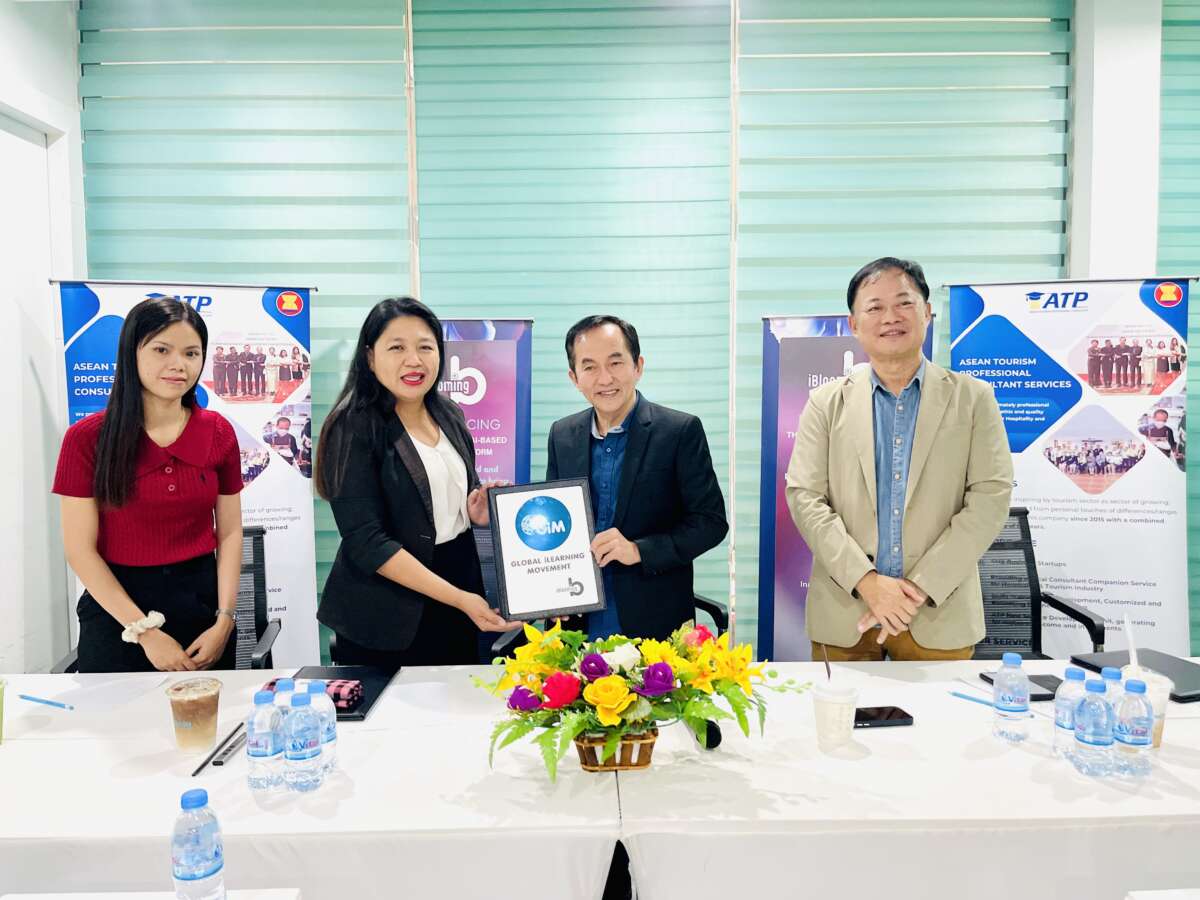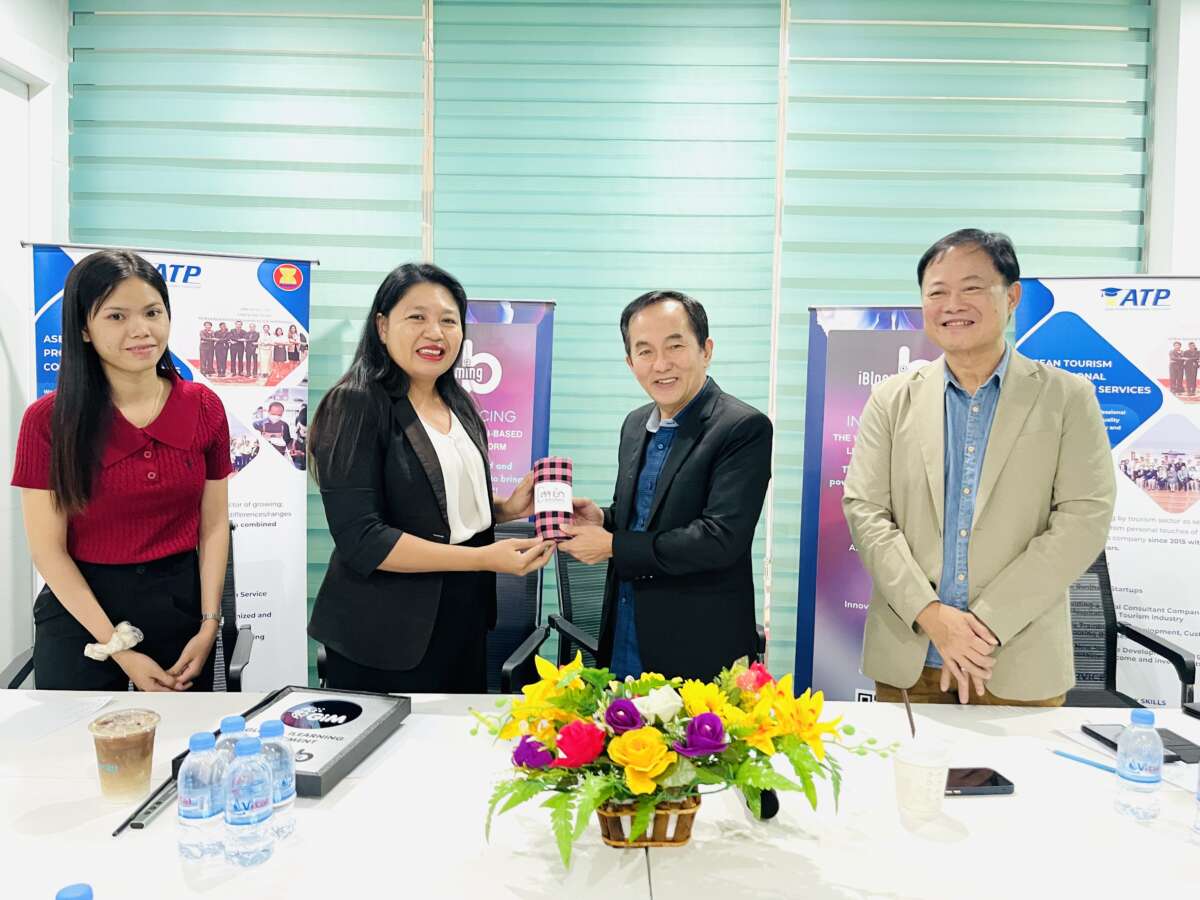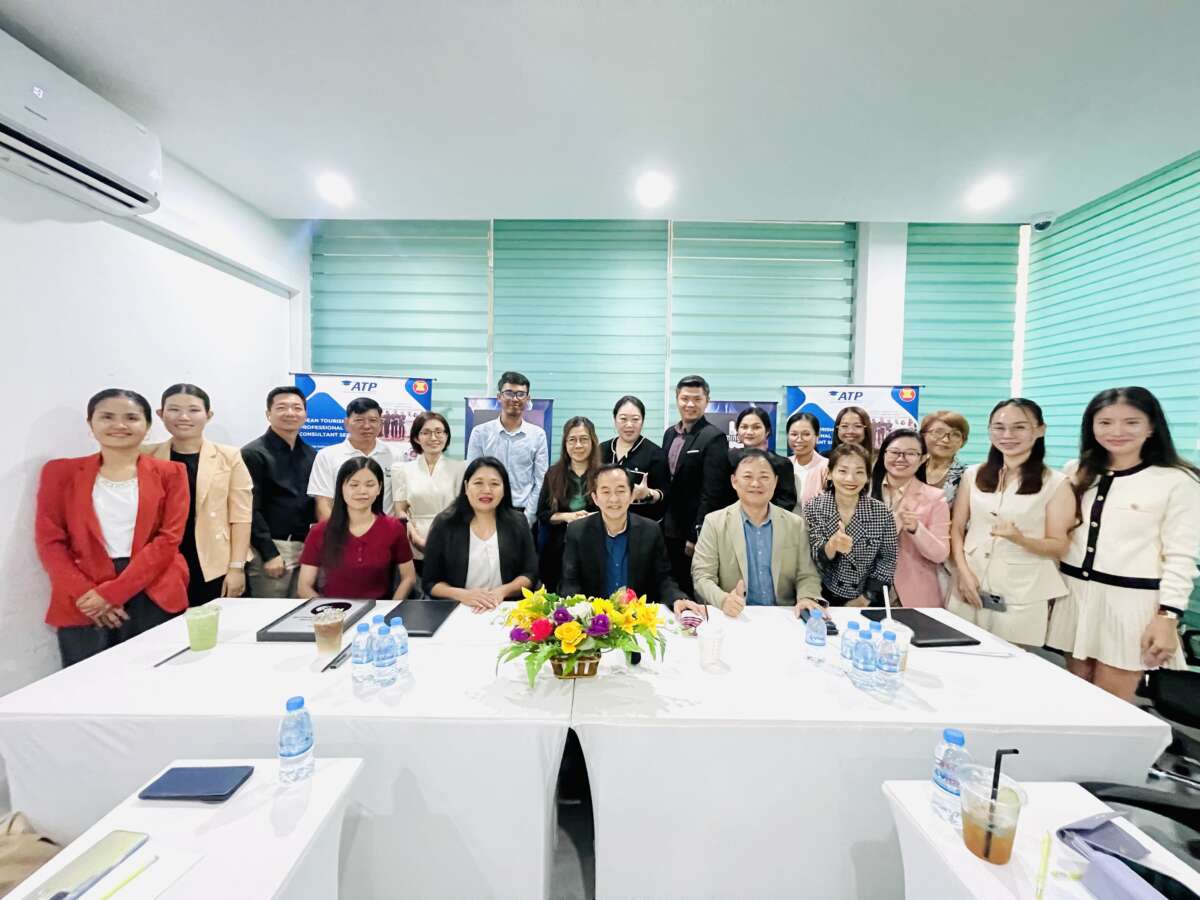iBlooming and ATP Consultant Unite to Revolutionize Hospitality Training in ASEAN
iBlooming has officially signed a Memorandum of Understanding (MOU) with ATP Consultant Co., Ltd., marking a significant partnership to elevate hospitality training, customer service, and educational content development across Cambodia and the ASEAN region. The MOU was signed on March 20, 2025, and represents a joint commitment to build future-ready talent in the hospitality industry. This collaboration aims to bridge artificial intelligence and vocational education, empowering professionals in the service sector through innovative and accessible training programs.
About ATP Consultant
ATP Consultant Co., Ltd. is a Cambodia-based consultancy specializing in hospitality and tourism training. With a team of over 40 tourism and TVET professionals, ATP Consultant delivers customized vocational and capacity-building programs. The organization also operates the ATP School of Hospitality and Tourism and has conducted training initiatives across several provinces in Cambodia.
Partnership Goals
The MOU formalizes a collaborative effort between iBlooming and ATP Consultant to:
- Enhance Customer Service and Hospitality Training
Develop and deliver high-quality training programs to raise service standards across the hospitality industry in the region. - Support Workforce Development
Equip hospitality professionals and business operators with industry-relevant skills through practical, locally adapted training modules. - Expand Access through AI-Powered Learning
Leverage iBlooming’s AI-driven learning platform to make training more accessible, multilingual, and personalized at scale.
Advancing Regional Capability Through AI
This partnership underscores a shared ambition to elevate hospitality training in Cambodia and the broader ASEAN region. It brings together ATP Consultant’s deep industry expertise and iBlooming’s AI-driven learning technology—recognized for its audio translation and content personalization capabilities. By integrating these technologies, the collaboration aims to make professional development more accessible, especially for non-English-speaking learners. The result is a more inclusive, scalable model for vocational upskilling that aligns with industry standards and regional needs.






